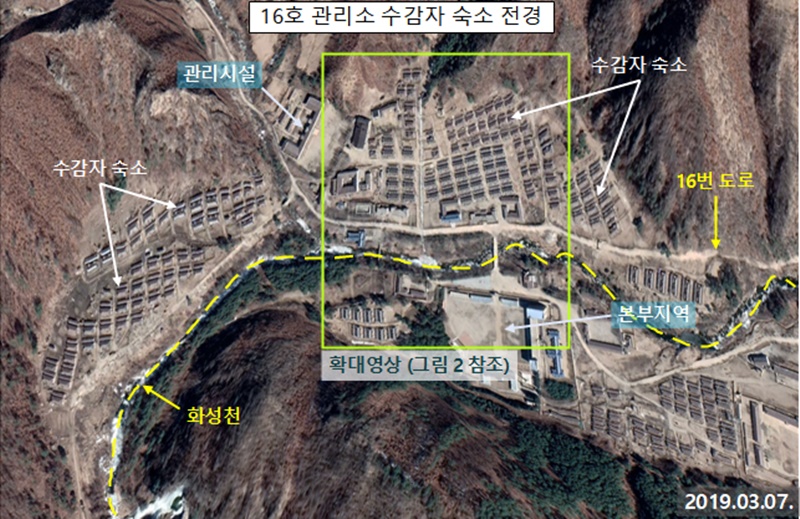
North Korea has established a new system to classify inmates of its political prisons. A source says 60% of the political prisoners in the Sino-North Korean border region convicted of serious crimes are sent to the political prison camp in Hwasong (Myonggan), North Hamgyong Province.
The source, who is based in North Korea, told Daily NK on Friday that the country established the new prisoner classification system in August. He said 60% of the political prisoners who committed the worst crimes in North Hamgyong Province, Yanggang Province, Chagang Province, and North Pyongan Province are sent to Camp No. 16 in Hwasong.
The source said the authorities have expanded some of the facilities at the Hwasong camp as its prisoner population grows due to the new system.
In a column for Daily NK in September based on analysis of satellite photos from 2019, Global Land Satellite Information Center of Kyungpook National University Deputy Director Jeong Seong-hak said prisoner lodgings and other facilities at the camp had been enlarged.
It appears authorities have enlarged the facility once more since 2019 with the recent influx of prisoners.
Why the prisoners were sent to Hwasong was apparently a factor in the facility’s expansion, too.
The camp may have undergone general systemic changes prior to becoming a dumping ground for the border region’s worst political prisoners, including an expansion of prison management personnel.
However, Daily NK has not learned specifics of the new prisoner classification system, including why it was created in the first place.
Since last year, North Korea has designated those who violate its emergency quarantine law and law to eradicate “reactionary” thought and culture as “defiers of party policy” and “especially serious political criminals,” locking them up in political prison camps.
It is highly likely that this move involves material regarding how to classify people who violate the two recent laws. Some observers also say North Korea may have built a system that separately designates violators of the laws as serious political criminals.
The source said if violators are classified as malicious, they will naturally be sent to a political prison camp run by the Ministry of State Security or some other place with especially bad work and living environments. On the other hand, those convicted of “second-class” crimes would get sent to places a bit better, he said.
Moreover, it appears the new system determines prisoner admission procedures, as well as whether to imprison them along with their families. This suggests that with North Korean authorities recently bolstering guilt-by-association laws, they may be dealing with the new issue of imprisoning children.
Meanwhile, the source said a battalion is guarding Hwasong prison camp. A single battalion is composed of three companies and an attached platoon.
The source said about 50 soldiers make up a company, and that each company has additional communications, railway exchange and line maintenance and prisoner reception units. This means the prison already has a thick layer of surveillance.

















